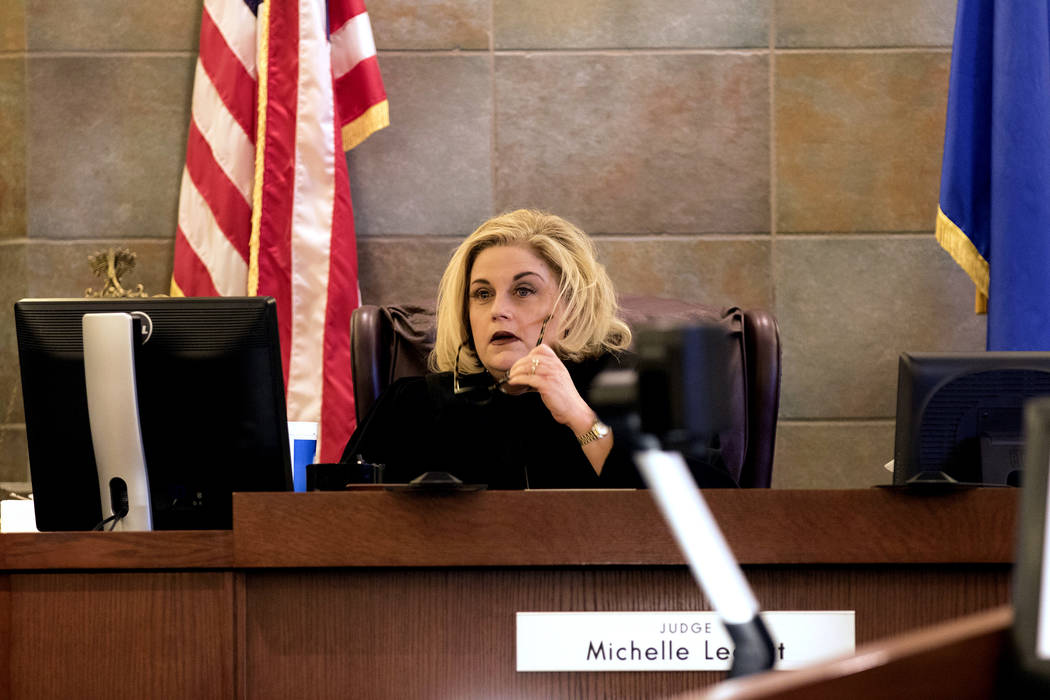Judge dismisses widow’s lawsuit against Las Vegas Review-Journal

A Clark County judge on Monday dismissed a lawsuit that the widow of an Oct. 1 shooting victim filed against the Las Vegas Review-Journal over the release of her husband’s autopsy report.
District Judge Michelle Leavitt said the Nevada Supreme Court had declared the report a public record.
“How does your complaint, as it stands now, even survive?” Leavitt asked the widow’s legal team Monday.
The autopsy report of Charleston Hartfield was one of 58 a different county judge in January deemed a public record in the wake of a lawsuit that the Review-Journal and The Associated Press filed against the county coroner’s office shortly after the mass shooting.
In each of the 58 released reports, the victim’s name and race were redacted.
The widow, Veronica Hartfield, cited privacy concerns in arguing her husband’s autopsy report should never have been released. Charleston Hartfield was a Las Vegas police officer, and on the night of the shooting, he was off-duty, attending the Route 91 Harvest festival with his wife.
In February, District Judge Richard Scotti agreed with the widow, ordering the media organizations to cease reporting on Hartfield’s autopsy report and destroy any copies, though the organizations argued it was impossible to identify which of the 58 reports was Hartfield’s.
A Nevada Supreme Court decision later that month concluded that Scotti’s decision violated the First Amendment.
“While we are deeply sympathetic to the decedent’s family’s privacy concerns, the First Amendment does not permit a court to enjoin the press from reporting on a redacted autopsy report already in the public domain,” the opinion stated.
In response to the Supreme Court decision, the Review-Journal and the AP filed a motion to dismiss the widow’s lawsuit, arguing that it targeted the media organizations that originally sued for the release of the autopsy records, which violates Nevada public records law. At the time of the widow’s lawsuit, several other media organizations had already received and reported on copies of the now-public autopsy reports.
Leavitt ruled in favor of the media on Monday.
In response to the decision, Review-Journal attorney Maggie McLetchie said the “media provides an important public service and operates as a check on governmental power when it obtains and reports on public records.”
“It would undermine both the free speech rights of the media and the important democratic principles underpinning the Nevada Public Records Act if the media could be sued for successfully suing to get access to records and reporting on public records,” McLetchie said.
Contact Rachel Crosby at rcrosby@reviewjournal.com or 702-477-8301. Follow @rachelacrosby on Twitter.